
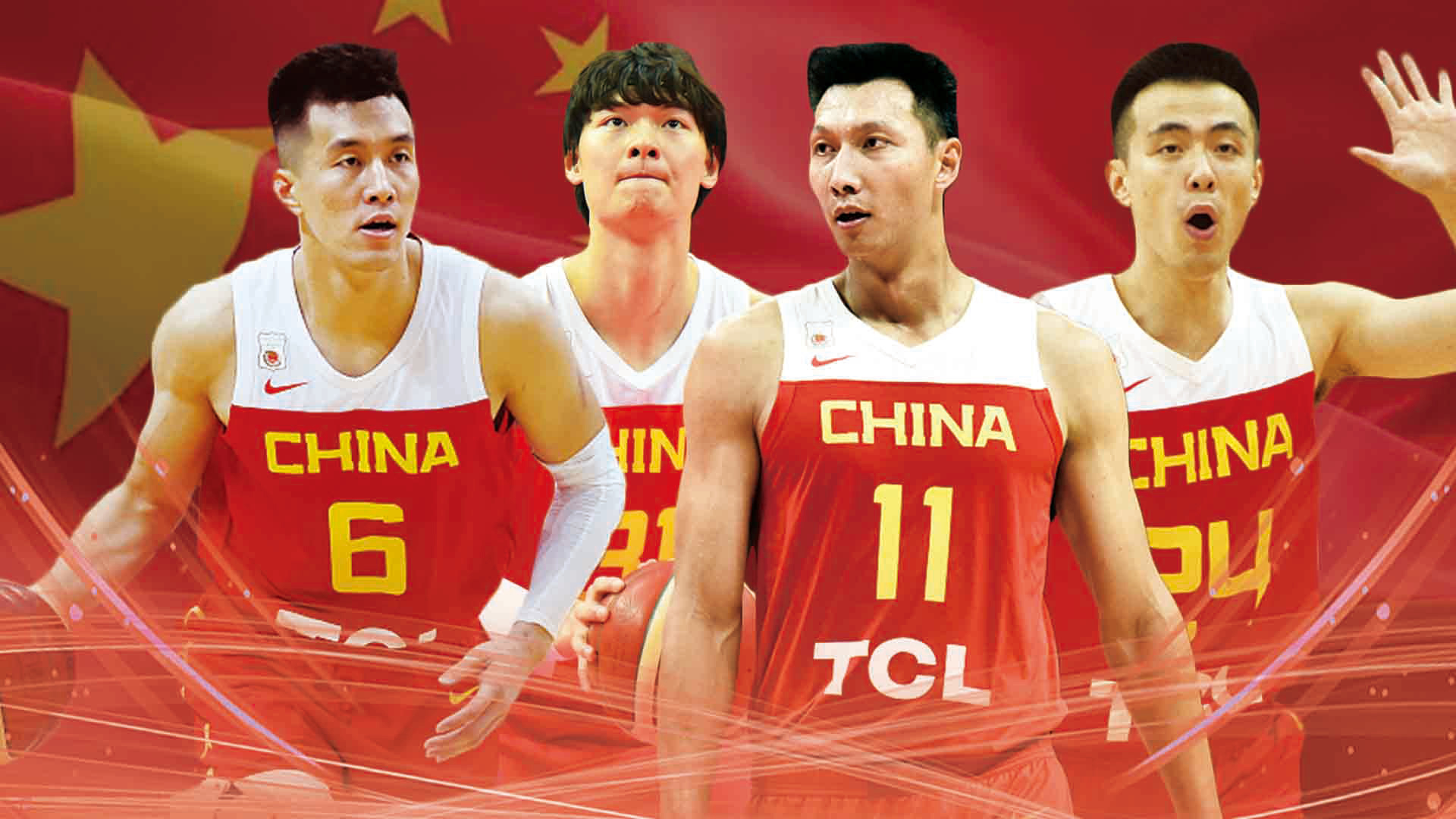
China's head coach Li Nan named the team's final 12-man list for the FIBA Basketball World Cup on Thursday after multiple delays. Zhou Peng, the captain, became the last one to be dropped from the roster because of an injury.
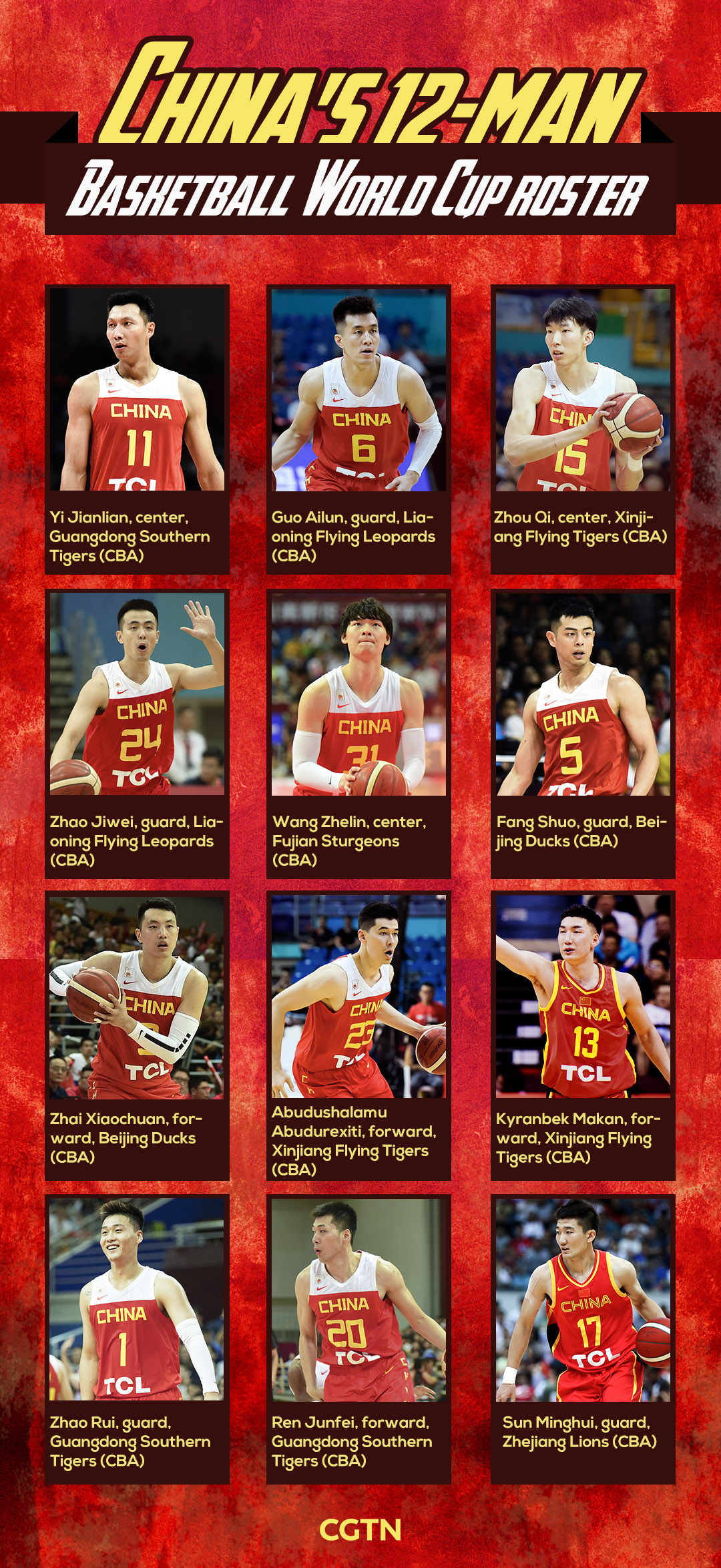
CGTN Photo by Liu Shaozhen, Fan Chenxiao
It's clear that China's biggest advantage with its roster is in the paint. As the team's No. 1 player, Yi Jianlian, has the sickest offensive skills and his attacking range can reach the 3-point line. Meanwhile, Yi's combination of size, strength and quickness enables him to both wrestle with other big men under the rim and patrol around for help on defense.
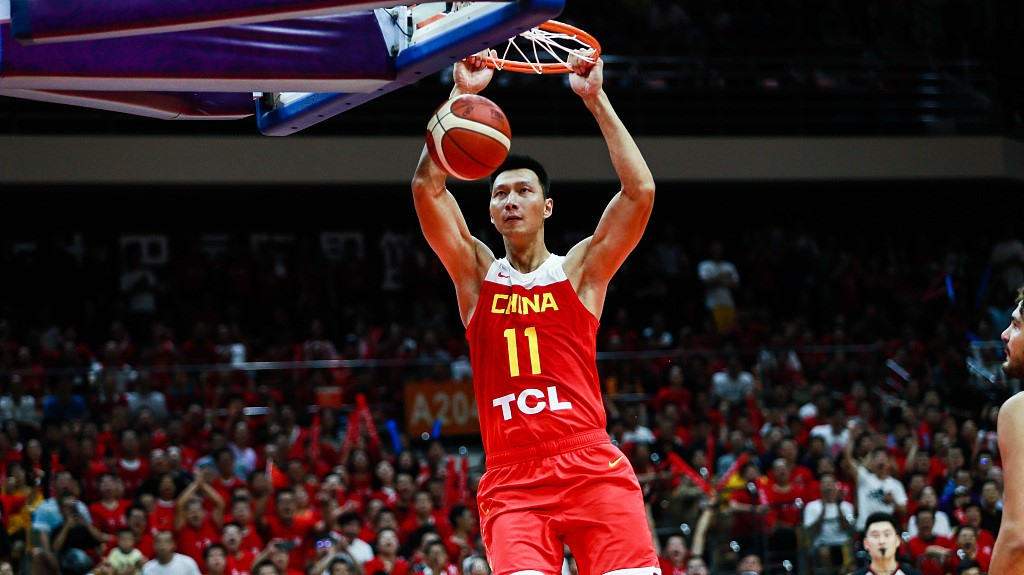
Yi Jianlian of China dunks in the warm-up game against Brazil, August 25, 2019. /VCG Photo
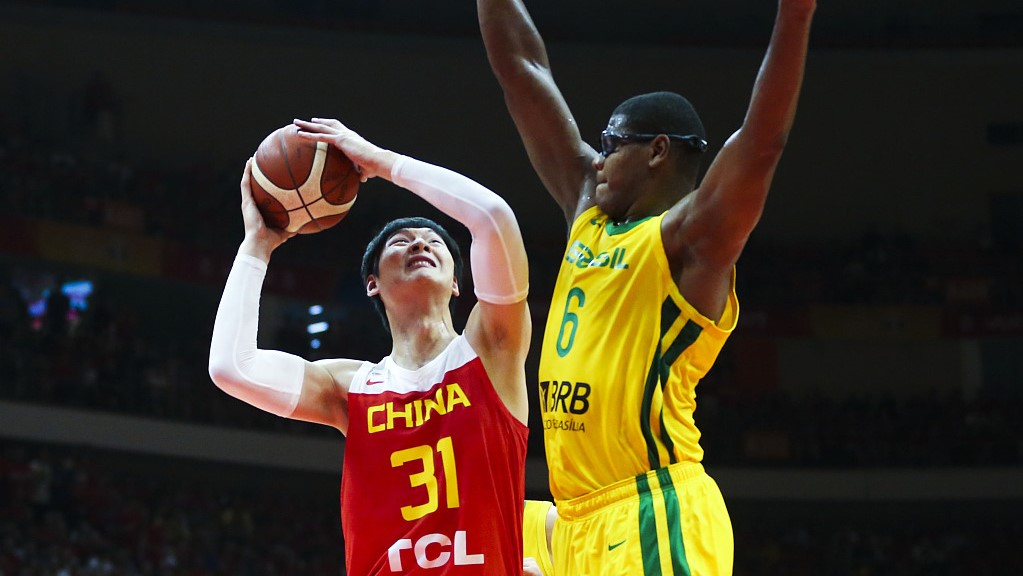
Wang Zhelin #31 of China shoots under defense in the warm-up game against Brazil, August 25, 2019. /VCG Photo
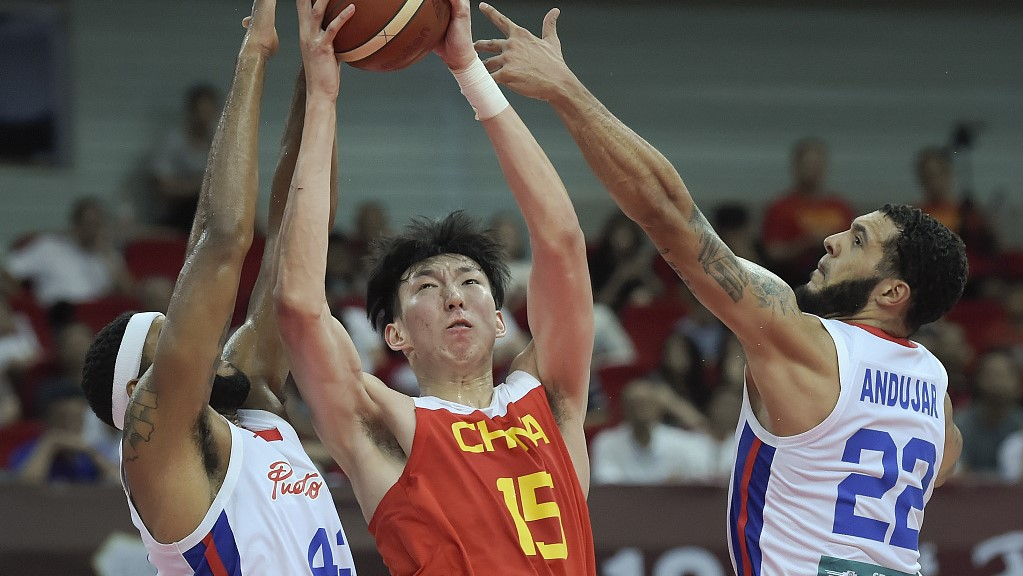
Zhou Qi of China grabs a rebound in the warm-up game against Puerto Rico, August 12, 2019. /VCG Photo
Compared with Yi, Wang Zhelin is China's siege engine. At 2.14-meters tall and weighing 122-kilograms, Wang has already proved that he won't lose in physical battles even with European and American giants. More importantly, his footwork, soft touch and acceptable middle-range shooting give him more choices on offense. Wang's problem is that he is still relatively slow in switch defense and relies on orchestrators to pass the ball to him.
Zhou Qi is the most modern big man of the three. He is tall (2.18 meters), fast, and, with an excellent wingspan of 2.33 meters, he can theoretically pose as a threat from the 3-point line. Zhou, Yi, and Wang have made China's new generation of "Walking Great Wall" on defense. However, lacking strength has become Zhou Qi's biggest shortcoming. With a weight of only 95 kilograms, the 23-year-old cannot pick any fight with those seven-foot (about 2.13 meters) monsters unless he wants to be chewed like a snack. Besides, Zhou still needs to work on his 3-pointers.
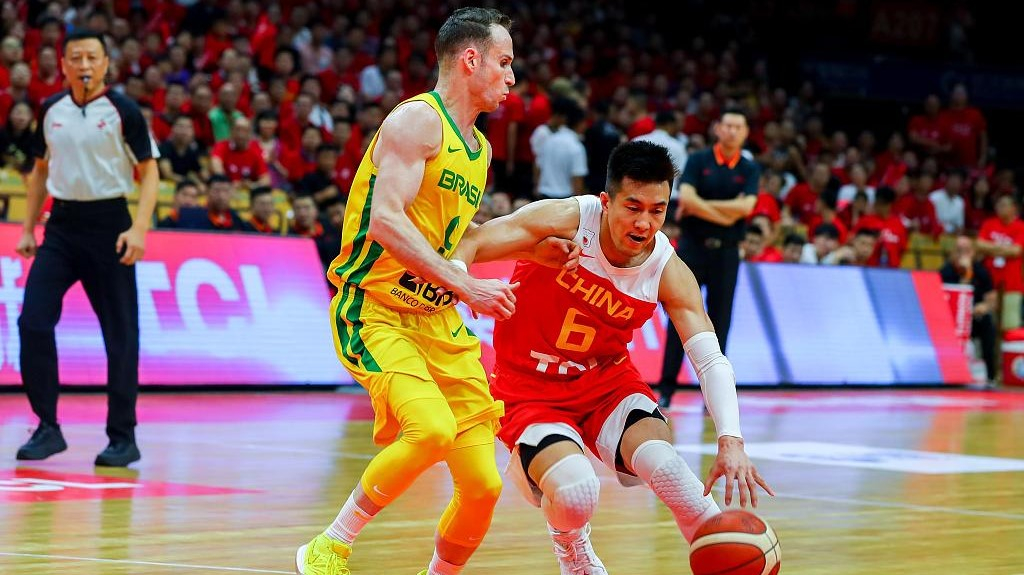
Guo Ailun of China tries to break defense in the warm-up game against Brazil, August 25, 2019. /VCG Photo
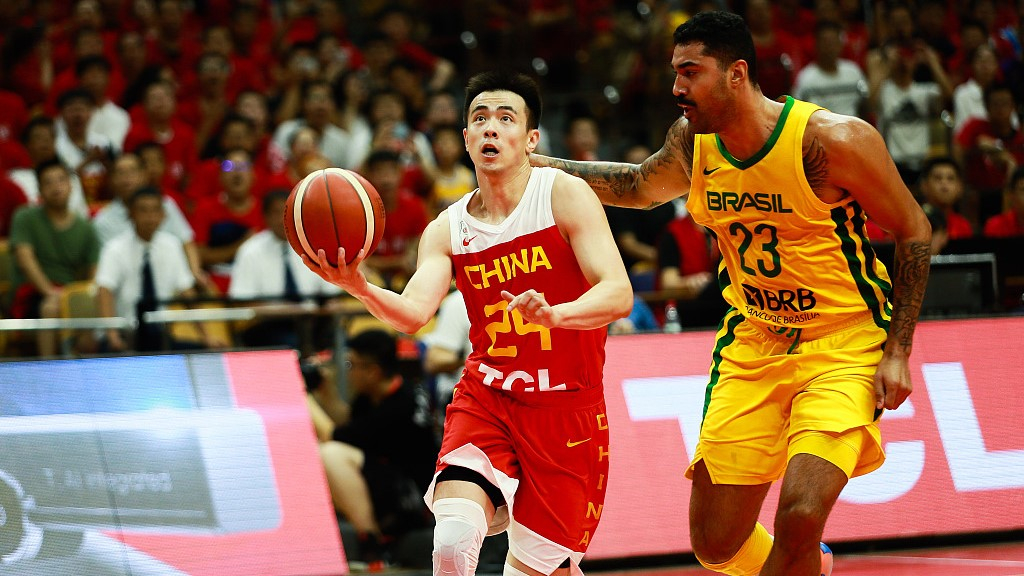
Zhao Jiwei of China handles the ball in the warm-up game against Brazil, August 25, 2019. /VCG Photo
In the back-court positions, Guo and Zhao should be able to secure two spots in the starting-lineup. As China's best slasher, Guo's penetration and assault against the rim will become the lifeline of the team's offense. By contrast, Zhao, who does not share Guo's athleticism, is China's metronome. His job is to read the game, control the pace and make the most rational decision on the court.
Coach Li must have missed Ding Yanyuhang who was left out from the final list because of an injury. As a result, the forward position has become China's biggest problem. Kyranbek, Zhai, Abudushalamu all work hard enough and can deliver an impressive performance on defense. However, none of them is able to carry the ball and breach the opponent's defense via individual attack like Ding can.
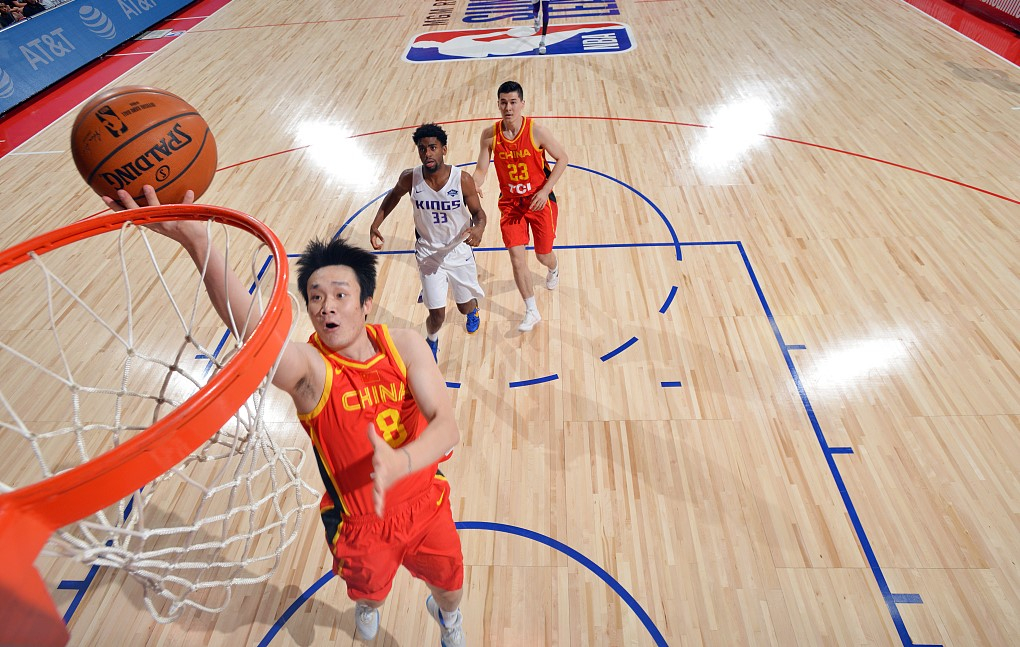
Ding Yanyuhang of China makes a layup in the NBA Summer League game against the Sacramento Kings, July 7, 2019. /VCG Photo
That explains why coach Li prefers to put three guards on the court in certain periods of the game. Without enough threat from the two wings, China can only rely on the back-court players to launch an attack. One more guard on the court is one more way to go when the team's offense cannot go on.
The benefit of such arrangement is that China will have better ball movement and more screen play to target on the opponent's big man. Nonetheless, having three guards means at least one of them has to face a mismatch on defense. That not good news for China because in most cases, foreign players who have the same height and weight are usually stronger and faster, not to mention if they are bigger in size.
The other problem is China's lack of sharp shooters. In multiple warm-up games, the team shot worse than 30 percent or even 20 percent from the 3-point line. That sends the following message to the opponent's defense: 'just close in and focus on guys in the paint, we cannot hurt you out here.' In today's basketball, stretching out the space is one of the most important things on offense but, unfortunately, China has to deal with their defects.
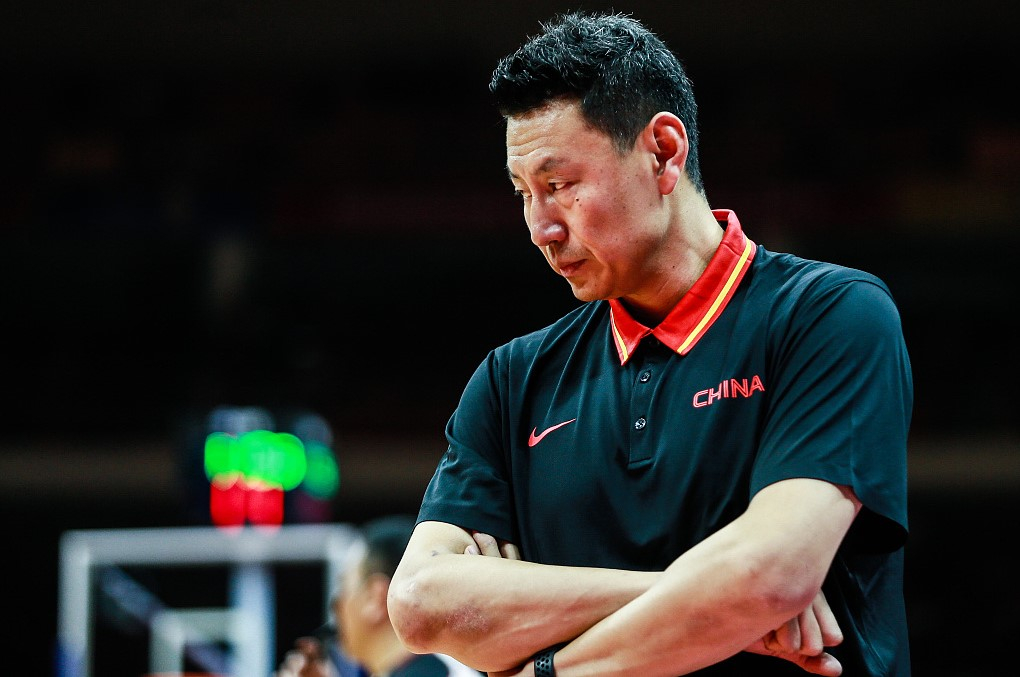
Li Nan, China's head coach, in the warm-up game against Brazil, August 25, 2019. /VCG Photo
Coach Li knows this but there's nothing he can do. According to Chinese basketball commentator Yang Yi, Li wanted to bring China's best shooters, for example, Wu Qian and Chen Linjian, and gave them enough time to prove themselves. However, only one of those shooters could get used to FIBA-level physical competition, not to mention that most of them were not reliable on defense. One thing about professional basketball is that a player has to complete every move under fierce physical engagement. If muscles are unable to stand such competition, player's shooting stance will change, leading him to miss the shots.
In the end, Li, who was an elite shooter when he was a player, chose to make the tough call – picking tough defense over shooters.
China, as the host of the World Cup, are in Group A with Poland, Venezuela and Cote d'Ivoire. On August 31, they will meet their first opponent Cote d'Ivoire at the Cadillac Arena in Beijing.

Copyright © 2018 CGTN. Beijing ICP prepared NO.16065310-3
Copyright © 2018 CGTN. Beijing ICP prepared NO.16065310-3